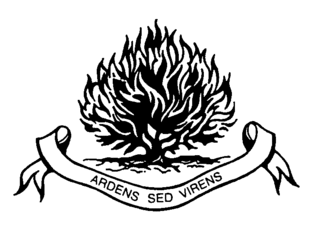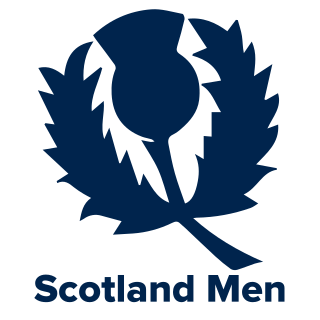| |||||
| Centuries: | |||||
|---|---|---|---|---|---|
| Decades: | |||||
| See also: | List of years in Scotland Timeline of Scottish history 1400 in: England • Elsewhere | ||||
Events from the year 1400 in the Kingdom of Scotland .
| |||||
| Centuries: | |||||
|---|---|---|---|---|---|
| Decades: | |||||
| See also: | List of years in Scotland Timeline of Scottish history 1400 in: England • Elsewhere | ||||
Events from the year 1400 in the Kingdom of Scotland .

The English Civil War (1642–1651) was a series of civil wars and political machinations between Parliamentarians ("Roundheads") and Royalists ("Cavaliers"), mainly over the manner of England's governance and issues of religious freedom. It was part of the wider Wars of the Three Kingdoms. The first (1642–1646) and second (1648–1649) wars pitted the supporters of King Charles I against the supporters of the Long Parliament, while the third (1649–1651) saw fighting between supporters of King Charles II and supporters of the Rump Parliament. The wars also involved the Scottish Covenanters and Irish Confederates. The war ended with Parliamentarian victory at the Battle of Worcester on 3 September 1651.

The England national football team has represented England in international football since the first international match in 1872. It is controlled by The Football Association (FA), the governing body for football in England, which is affiliated with UEFA and comes under the global jurisdiction of world football's governing body FIFA. England competes in the three major international tournaments contested by European nations: the FIFA World Cup, the UEFA European Championship, and the UEFA Nations League.

Mary, Queen of Scots, also known as Mary Stuart or Mary I of Scotland, was Queen of Scotland from 14 December 1542 until her forced abdication in 1567.

Presbyterianism is a part of the Reformed tradition within Protestantism that traces its origin to the Church of Scotland.

Scotland is a country that is part of the United Kingdom. Covering the northern third of the island of Great Britain, mainland Scotland has a 96-mile (154 km) border with England to the southeast and is otherwise surrounded by the Atlantic Ocean to the north and west, the North Sea to the northeast and the Irish Sea to the south. The country also contains more than 790 islands, principally in the archipelagos of the Hebrides and the Northern Isles. Most of the population, including the capital Edinburgh, is concentrated in the Central Belt – the plain between the Scottish Highlands and the Southern Uplands – in the Scottish Lowlands.

The United Kingdom of Great Britain and Northern Ireland, commonly known as the United Kingdom (UK) or Britain, is a sovereign country in north-western Europe, off the north-western coast of the European mainland. The United Kingdom includes the island of Great Britain, the north-eastern part of the island of Ireland, and many smaller islands within the British Isles. Northern Ireland shares a land border with the Republic of Ireland. Otherwise, the United Kingdom is surrounded by the Atlantic Ocean, with the North Sea to the east, the English Channel to the south and the Celtic Sea to the south-west, giving it the 12th-longest coastline in the world. The Irish Sea separates Great Britain and Ireland. The total area of the United Kingdom is 242,500 square kilometres (93,628 sq mi), with an estimated population in 2020 of 68 million.

The Wars of Scottish Independence were a series of military campaigns fought between the Kingdom of Scotland and the Kingdom of England in the late 13th and early 14th centuries.

The Stone of Scone —also known as the Stone of Destiny, and often referred to in England as The Coronation Stone—is an oblong block of red sandstone that has been used for centuries in the coronation of the monarchs of Scotland. It is also known as Jacob's Pillow Stone and the Tanist Stone, and as clach-na-cinneamhain in Scottish Gaelic.

In the United Kingdom, a scheduled monument is a nationally important archaeological site or historic building, given protection against unauthorised change.

A listed building, or listed structure, is one that has been placed on one of the four statutory lists maintained by Historic England in England, Historic Environment Scotland in Scotland, Cadw in Wales and the Northern Ireland Environment Agency in Northern Ireland.

James VI and I was King of Scotland as James VI from 24 July 1567 and King of England and Ireland as James I from the union of the Scottish and English crowns on 24 March 1603 until his death in 1625. The kingdoms of Scotland and England were individual sovereign states, with their own parliaments, judiciaries, and laws, though both were ruled by James in personal union.

Sterling banknotes are the banknotes in circulation in the United Kingdom and its related territories, denominated in pounds sterling.

Hampden Park is a football stadium in the Mount Florida area of Glasgow, Scotland. The 51,866-capacity venue serves as the national stadium of football in Scotland. It is the normal home venue of the Scotland national football team and was the home of club side Queen's Park for over a century. Hampden regularly hosts the latter stages of the Scottish Cup and Scottish League Cup competitions and has also been used for music concerts and other sporting events, such as when it was reconfigured as an athletics stadium for the 2014 Commonwealth Games.

The Scotland national football team represents Scotland in men's international football and is controlled by the Scottish Football Association. It competes in the three major professional tournaments: the FIFA World Cup, UEFA Nations League and the UEFA European Championship. Scotland, as a country of the United Kingdom, is not a member of the International Olympic Committee, and therefore the national team does not compete in the Olympic Games. The majority of Scotland's home matches are played at the national stadium, Hampden Park.

The England national rugby union team represents England in men's international rugby union. They compete in the annual Six Nations Championship with France, Ireland, Italy, Scotland and Wales. England have won the championship on 29 occasions – winning the Grand Slam 13 times and the Triple Crown 26 times – making them the most successful outright winners in the tournament's history. As of 15 November 2021, England are ranked third in the world by the International Rugby Board. They are currently the only team from the Northern Hemisphere to win the Rugby World Cup, having won the tournament in 2003, and have been runners-up on three other occasions.

The Scotland national cricket team represents the country of Scotland. They play their home matches at The Grange, Edinburgh, and also some other venues.

Great Britain is an island in the North Atlantic Ocean off the northwest coast of continental Europe. With an area of 209,331 km2 (80,823 sq mi), it is the largest of the British Isles, the largest European island, and the ninth-largest island in the world. The island is dominated by a maritime climate with narrow temperature differences between seasons. The 60% smaller island of Ireland is to the west – and together these islands, along with over 1,000 smaller surrounding islands and named substantial rocks, form the British Isles archipelago.

The United Kingdom of Great Britain and Northern Ireland (UK), since 1922, comprises four constituent countries: England, Scotland, and Wales, as well as Northern Ireland. The UK Prime Minister's website has used the phrase "countries within a country" to describe the United Kingdom. Some statistical summaries, such as those for the twelve NUTS 1 regions of the United Kingdom, refer to Scotland, Wales and Northern Ireland as "regions". With regard to Northern Ireland, Scotland and Wales particularly, the descriptive name one uses "can be controversial, with the choice often revealing one's political preferences".